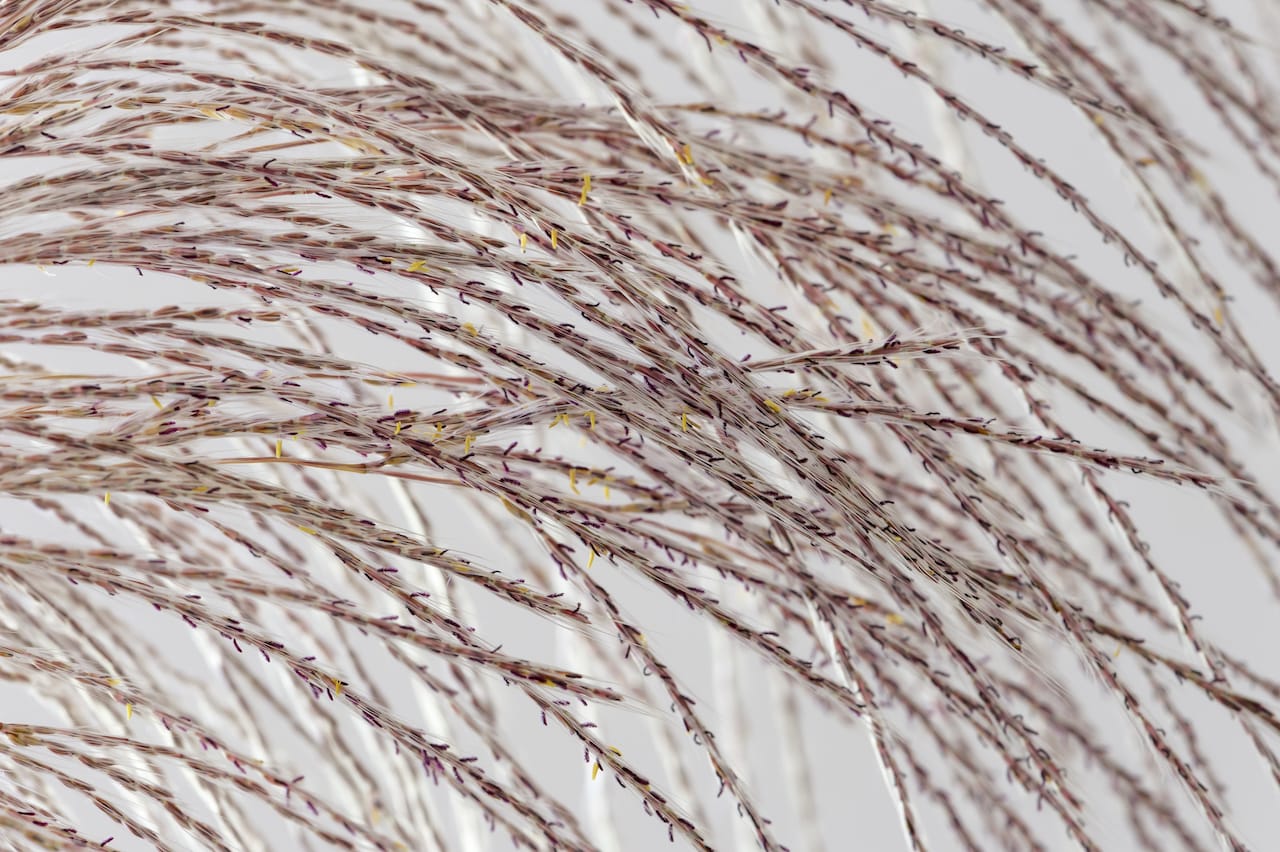Plant Breeding department
The Réunion Plant Breeding programme was launched in 1929 with the aim of creating sugarcane varieties adapted to the island’s contrasted agroclimatic conditions. The breeding process involves two main steps: hybridization and selection.
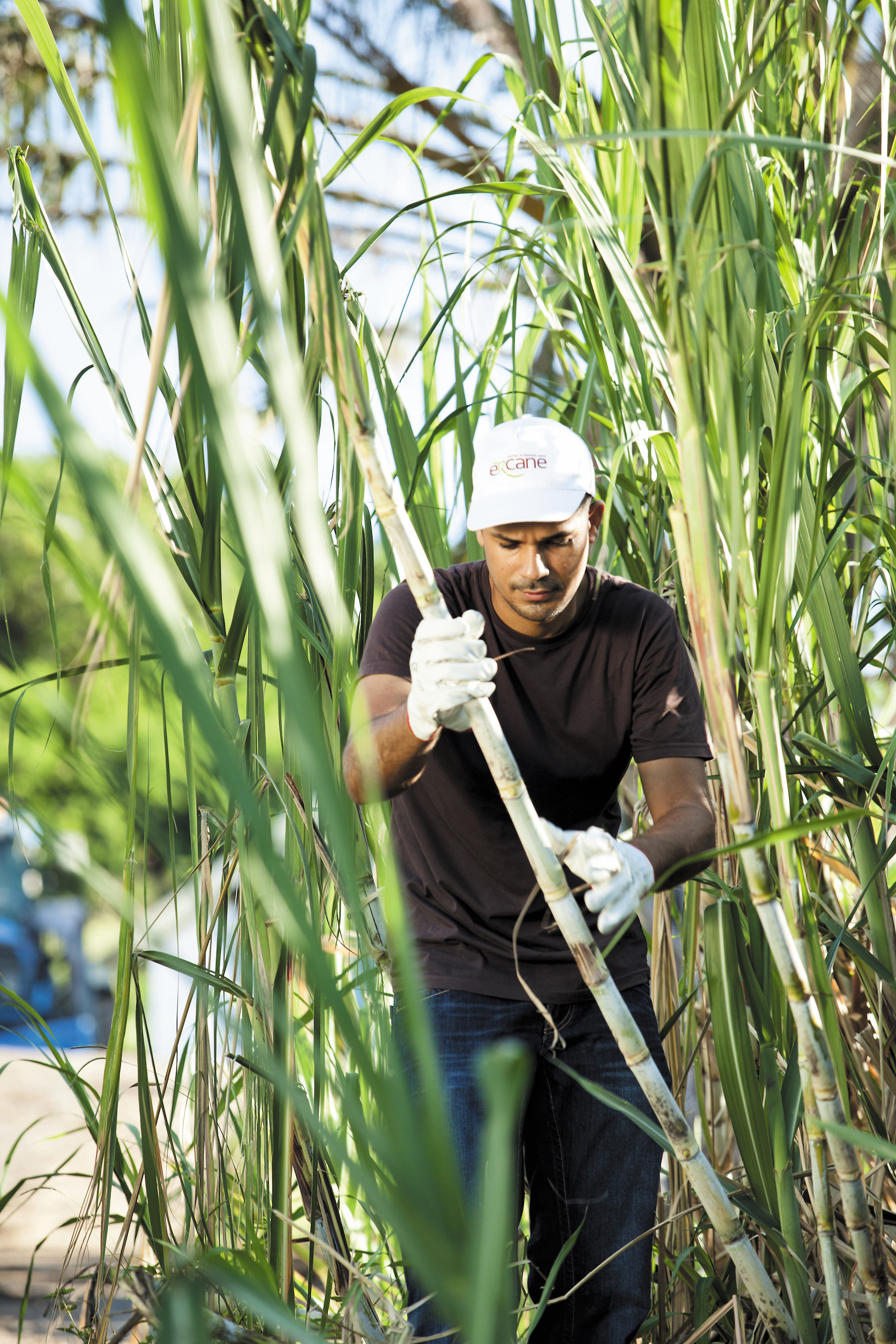
The hybridization process generates genetic diversity via crossing of flowers from our sugarcane germplasm collection, while the selection process highlights the best varieties adapted to the different sugarcane growing areas in Réunion.
eRcane is striving to meet the needs of Réunion farmers through a major experimental scheme, consisting of seven sugarcane selection stations located in the island’s different sugarcane growing areas under various conditions: coastal, highland, dry, wet, irrigated, etc. Nearly 200 ha are devoted to selection trials.
eRcane is also involved in sugarcane genetics research. This work—carried out in collaboration with CIRAD research teams—aims to gain further insight into the highly complex genome of this crop plant and to develop genetic tools tailored for our plant breeding endeavours.
Hybridization
Hybridization is the first step in the sugarcane breeding process. It generates genetic diversity that can be exploited to breed new varieties.
The eRcane germplasm collection consists of around 1,000 clones:
– 60% of clones developed in Réunion
– 40% of varieties developed by other partner plant breeding centres.
This dynamic collection, which progresses yearly with the addition of new clones and the removal of some others, is well characterised on the basis of data collected throughout the sugarcane selection process.
Hybridization at eRcane is based on natural flowering in the field, which takes place from May to June. Over 2,000 panicles from the collection are pollinated every year, and about 1,500 parental combinations are achieved via pollination in glasshouse conditions.
At sowing, fuzz (sugarcane seeds) from crosses enables us to obtain around 100,000 seedlings (plantlets grown from seeds) yearly. These new clones are used in the sugarcane breeding process, involving around 15,000 plantlets per selection station.
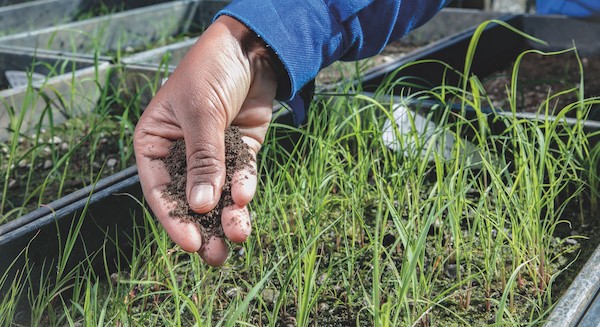
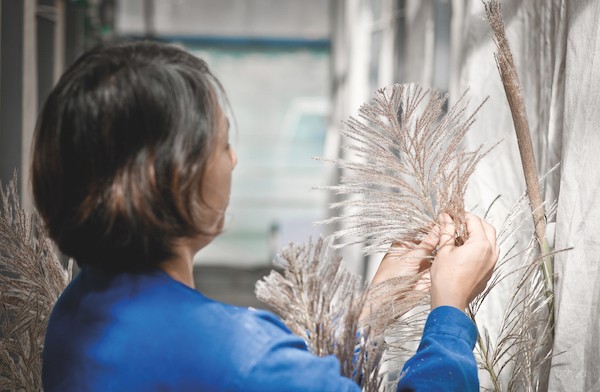
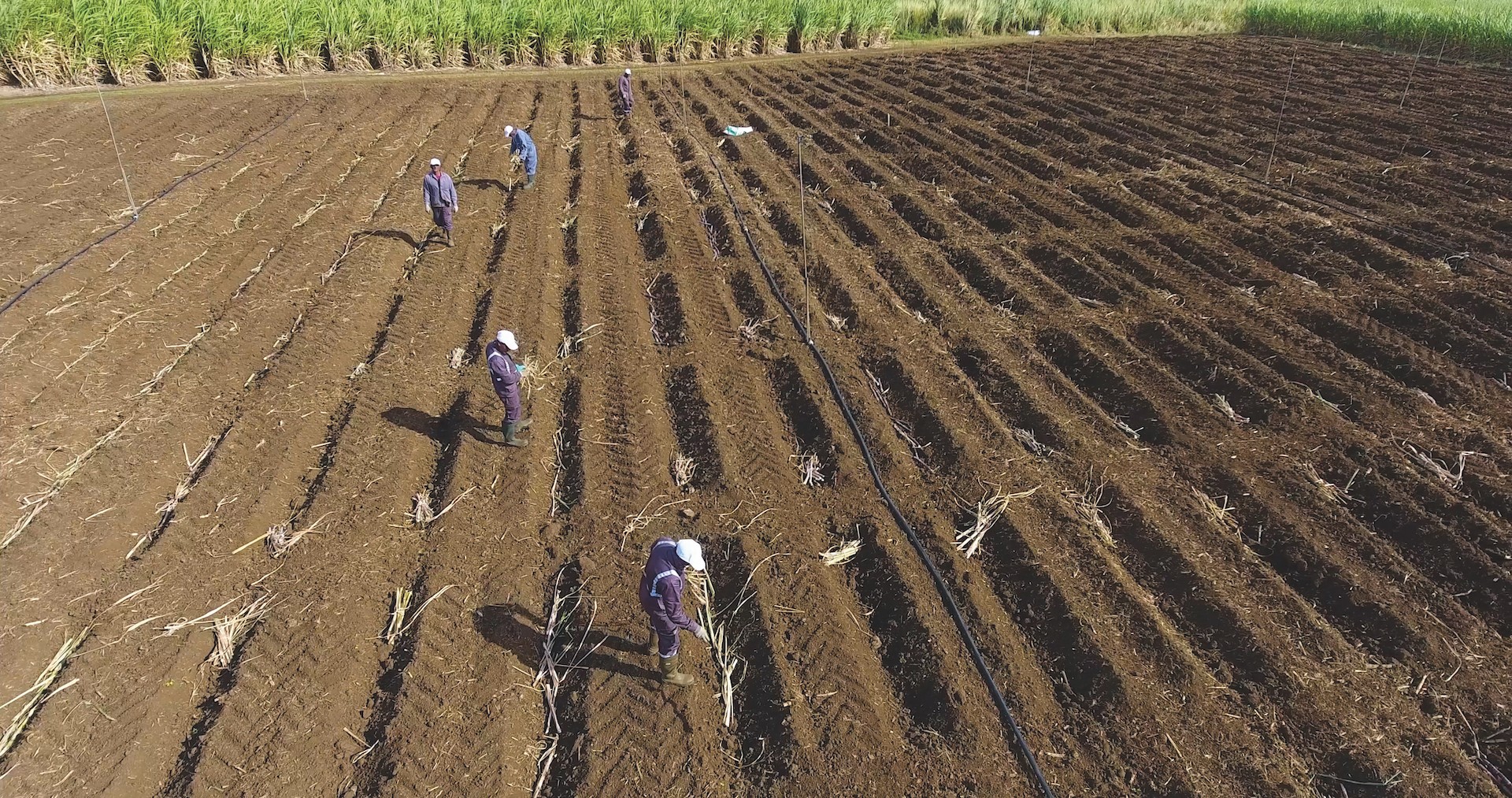
Selection
The eRcane Plant Breeding programme identifies—among a broad range of varieties created each year—those offering a greater agricultural potential than varieties currently grown commercially in Réunion. 100,000 clones resulting from the hybridization process (derived from sugarcane seeds) are transplanted each year at the seven eRcane selection stations.
Through a series of five selection phases, we attempt to identify clones that combine high yield, ratooning potential, resistance to biotic (viruses, bacteria, fungi, pests) and abiotic (tolerance to cold, drought, acidic soil, etc.) stresses that may be encountered in these seven environments. These five selection phases extend over 14 years and involve increasingly robust experimental systems. The best varieties are identified based on agronomic observations in the field (variety morphology, habit, flowering, etc.) and yield measurements (cane weighing and NIRS technological analyses to determine the sucrose content, fibre content, etc.) In the final selection stage the best genotypes of each station are assessed in a broad range of environments to determine the adaptation capacities of the best clones to the different agroclimatic zones in Réunion. A release process is then initiated for all varieties offering added value. These selected varieties are then disseminated, i.e. 2 tons of cuttings are distributed to growers located in the area for which each new commercial variety is adapted.
Genetics
while focusing on:
- genetic modelling of agronomic traits to obtain information useful for optimising management of the selection scheme
- innovative mathematical models to overcome the risks of spatial heterogeneity in variety trials and improve the experimental accuracy of selection decisions
- checks on the legitimacy of genealogies and biological compatibility studies between parent stock in support of the hybridization programme
- molecular marker detection of genome regions bearing genes of agronomic value
- statistical models of genomic predictions of agronomic performance of selected varieties.
